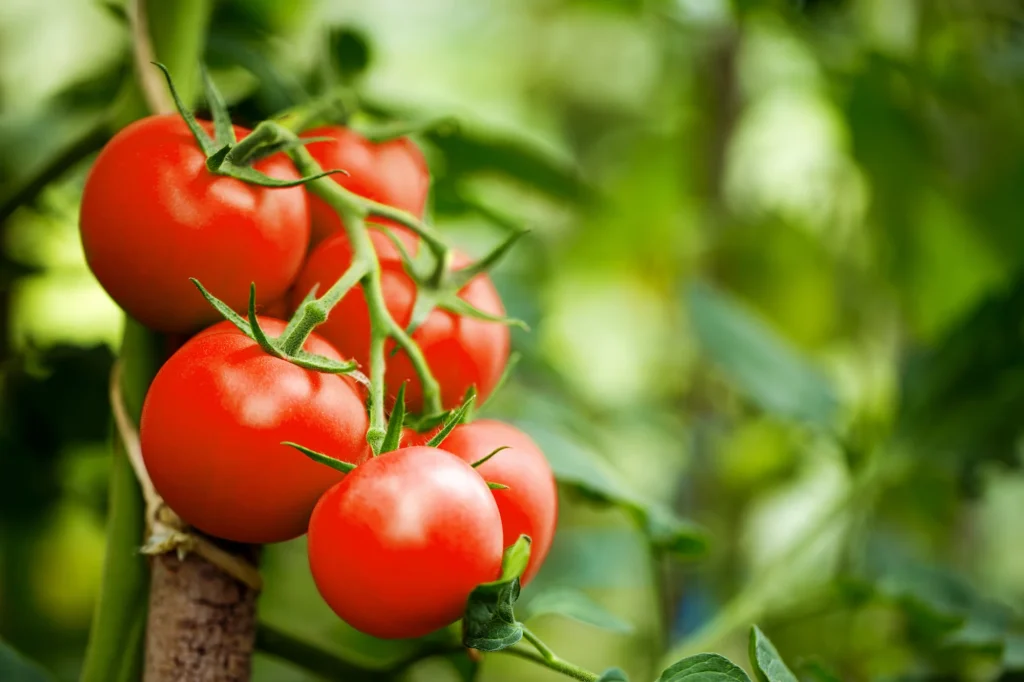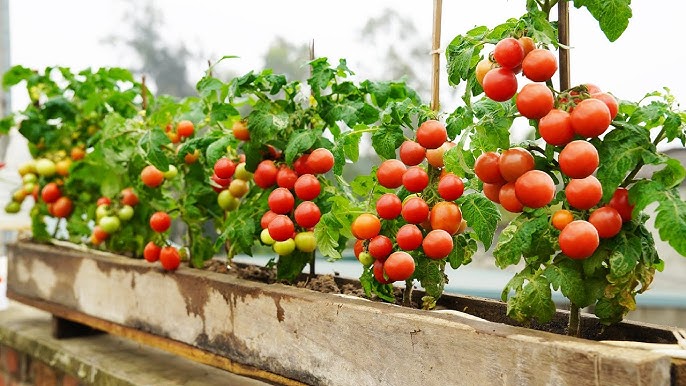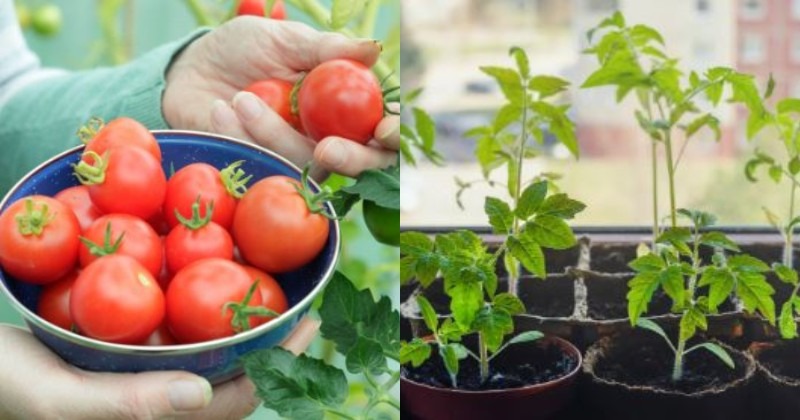Fresh, home-grown tomatoes are now possible even if you live in a flat! With just a few hours of sunlight, some basic tools, and consistent care, you can grow tomatoes on your apartment balcony with ease.
This complete guide is tailored for urban Indian households, beginners, and eco-conscious individuals who want to start balcony gardening. Let’s explore how to grow tomatoes step by step, even without a backyard or terrace garden.
Why Grow Tomatoes on Your Balcony?
Tomatoes are one of the most popular and practical plants for home gardening. Here’s why:
- They thrive in containers or grow bags.
- Minimal space is required.
- A single plant can yield many fruits.
- Home-grown tomatoes are fresher and free of chemicals.
- It’s an ideal starter crop for new gardeners.
It also helps you reduce your vegetable bills and adopt a healthier lifestyle.
Ideal Conditions for Growing Tomatoes in Indian Balconies

Tomatoes need sunlight. Your balcony should receive at least 4 to 6 hours of direct sunlight daily.
South- or west-facing balconies usually get good sun exposure. If yours gets limited sunlight, consider growing dwarf tomato varieties or cherry tomatoes, which need less light.
Best Tomato Varieties for Container Gardening in India
Pick compact or bush-type tomato plants, which are suitable for containers. Popular options include:
- Cherry Tomatoes – Small, sweet, ideal for salads.
- Roma Tomatoes – Great for cooking and sauces.
- Pusa Ruby – A reliable Indian variety.
- Patio Tomato – Bred for small spaces.
- Desi Tamatar – Local variety, easy to grow and disease-resistant.
Look for “determinate varieties” on seed packets, as these stay small and produce fruit in a shorter period.
Also Read Budget Living Room Glow-Up: Stylish Makeover Ideas for Indian Homes
What You Need to Start Growing Tomatoes at Home
Basic Materials Checklist:
- Tomato seeds or saplings
- A container (at least 12–16 inches deep)
- Potting mix or garden soil
- Compost or cow dung manure
- Watering can
- Wooden stakes or bamboo sticks for support
- A sunny balcony space
You can also use recycled buckets, grow bags, or terracotta pots with good drainage.
How to Grow Tomatoes in Pots – Step-by-Step Guide
Step 1: Choose the Right Container
- Minimum 12–16 inches deep
- With proper drainage holes
- Made from plastic, earthenware, grow bags, or recycled materials
Larger containers mean better root growth and more tomatoes.
Step 2: Prepare Potting Mix
Tomatoes prefer loose, well-draining, and nutrient-rich soil.
DIY potting mix recipe:
- 40% garden soil
- 30% organic compost or cow dung
- 30% cocopeat or river sand
Mix well to ensure proper aeration.
Step 3: Planting the Seeds
- Start by sowing seeds in a nursery tray or small pot.
- Cover lightly with soil and water gently.
- Keep in a warm, bright area.
- Seeds germinate in 7–10 days.
- Once seedlings are 5–6 inches tall, transplant to larger containers.
Or you can directly buy saplings from a local nursery.
Tomato Plant Care – Keep Your Plants Healthy
Sunlight
Make sure the plants receive 6–8 hours of direct sunlight daily. This is essential for fruit production.
Watering
- Water every day or every alternate day.
- Avoid waterlogging. Check that excess water drains out.
- Water near the soil base and not on the leaves.
Fertilizing
Feed your plants every 2–3 weeks using:
- Organic compost
- Liquid fertilizers like banana peel water, compost tea, or buttermilk spray
- Vermicompost for strong growth
Support and Pruning
- Use a bamboo stick or plant cage to support the plant as it grows.
- Remove yellow or damaged leaves.
- Pinch off side shoots to focus energy on fruit growth.
Harvesting Your Home-Grown Tomatoes
Tomatoes take about 60–80 days to ripen after transplanting. You’ll know they’re ready when:
- They turn red, orange, or pink depending on variety
- The skin becomes slightly soft
- They smell sweet and tomato-like
Pick them gently and enjoy them fresh in salads, chutneys, or curries.
Common Tomato Problems and Natural Solutions
| Problem | Reason | Solution |
|---|---|---|
| Yellowing leaves | Overwatering or poor drainage | Water less, ensure drainage holes are open |
| Whiteflies or aphids | Pests feeding on sap | Use neem oil spray every 7 days |
| Leaf spots or fungal infections | Humidity and wet leaves | Improve air flow, remove infected leaves |
| No flowering or fruit | Not enough sunlight or nutrients | Increase sunlight, use compost |
Useful Tips for Balcony Tomato Gardening in India
- Rotate pots every few days to ensure even sunlight exposure.
- Add crushed eggshells or banana peels into the soil for calcium and potassium.
- Avoid placing too many plants too close together.
- Watch out for early signs of pests.
- Water early in the morning for best results.
Benefits of Growing Tomatoes at Home
- Get fresh, chemical-free produce anytime.
- Save money on market vegetables.
- Reduce plastic and packaging waste.
- Improve your health and well-being.
- Encourage children and family to connect with nature.
FAQs – Growing Tomatoes in Small Spaces
Q1. Which is the best season to grow tomatoes in India?
Tomatoes can be grown in spring (February–March) and autumn (October–November). Avoid peak summer or heavy monsoon periods.
Q2. Can I grow tomatoes in grow bags?
Yes, grow bags are perfect for tomatoes and are widely used in Indian homes.
Q3. Do tomatoes grow indoors without sun?
Tomatoes need direct sun. Without sunlight, they may grow but won’t bear much fruit. You can use LED grow lights if growing indoors.
Q4. What is the easiest tomato variety for Indian beginners?
Cherry tomatoes or Pusa Ruby are good choices for beginners in Indian conditions.
Q5. How often should I water tomato plants?
Water daily in summer and alternate days during cooler months. Adjust based on how quickly the soil dries.
Final Thoughts: Fresh Tomatoes Just a Few Steps Away
Even without a traditional garden, balcony gardening in Indian apartments is simple and rewarding. All you need is sunlight, a pot, and a little patience. In just two months, you can enjoy fresh tomatoes straight from your own plants.
Start today, and bring farm-fresh flavor to your home-cooked meals.
Author- Ayush










